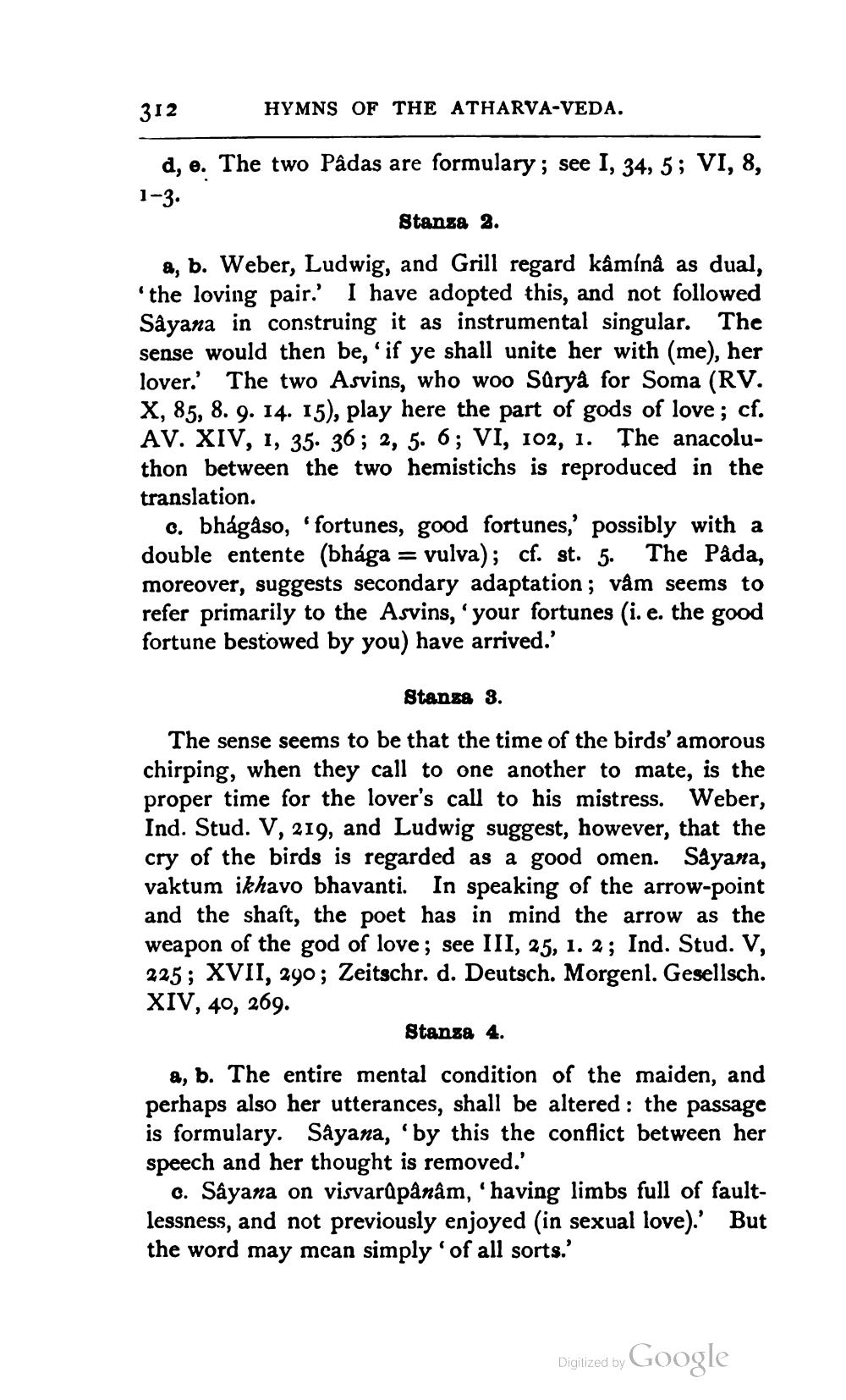________________
312
HYMNS OF THE ATHARVA-VEDA.
d, e. The two Pâdas are formulary; see I, 34, 5; VI, 8, 1-3.
Stansa 2. a, b. Weber, Ludwig, and Grill regard kamina as dual, 'the loving pair. I have adopted this, and not followed Sayana in construing it as instrumental singular. The sense would then be, ‘if ye shall unite her with (me), her lover. The two Asvins, who woo Sarya for Soma (RV. X, 85, 8. 9. 14. 15), play here the part of gods of love ; cf. AV. XIV, 1, 35. 36 ; 2, 5. 6; VI, 102, 1. The anacoluthon between the two hemistichs is reproduced in the translation.
c. bhágaso, 'fortunes, good fortunes,' possibly with a double entente (bhága = yulva); cf. st. 5. The Påda, moreover, suggests secondary adaptation ; våm seems to refer primarily to the Asvins, your fortunes (i. e. the good fortune bestowed by you) have arrived.'
Stansa 3. The sense seems to be that the time of the birds' amorous chirping, when they call to one another to mate, is the proper time for the lover's call to his mistress. Weber, Ind. Stud. V, 219, and Ludwig suggest, however, that the cry of the birds is regarded as a good omen. Sayana, vaktum ikhavo bhavanti. In speaking of the arrow-point and the shaft, the poet has in mind the arrow as the weapon of the god of love; see III, 25, 1. 2; Ind. Stud. V, 225; XVII, 290; Zeitschr. d. Deutsch. Morgenl. Gesellsch. XIV, 40, 269.
Stanza 4. a, b. The entire mental condition of the maiden, and perhaps also her utterances, shall be altered : the passage is formulary. Sayana, 'by this the conflict between her speech and her thought is removed.'
c. Sâyana on visvarūpânâm,'having limbs full of faultlessness, and not previously enjoyed (in sexual love).' But the word may mcan simply of all sorts.'
Digized by Google




